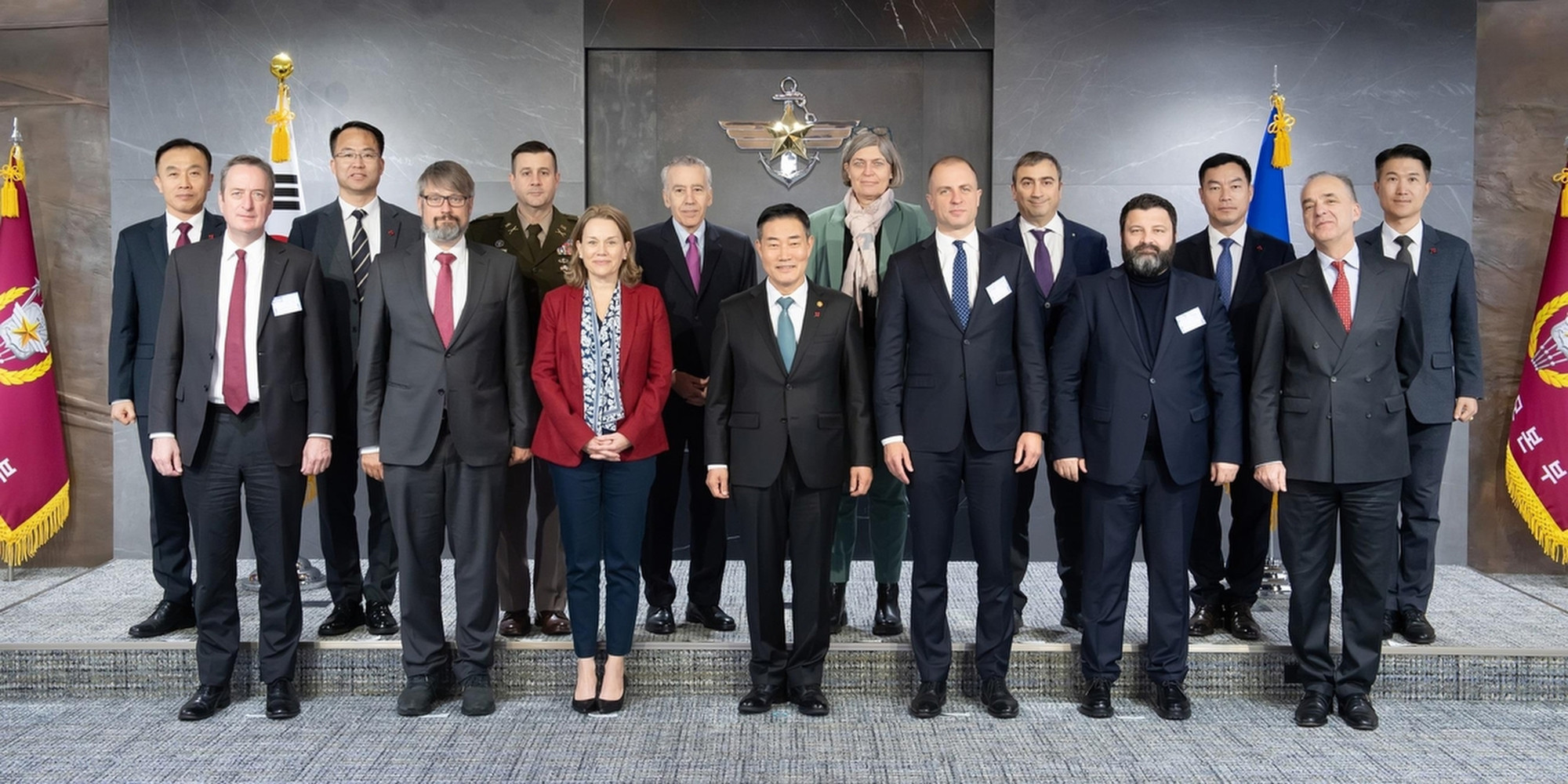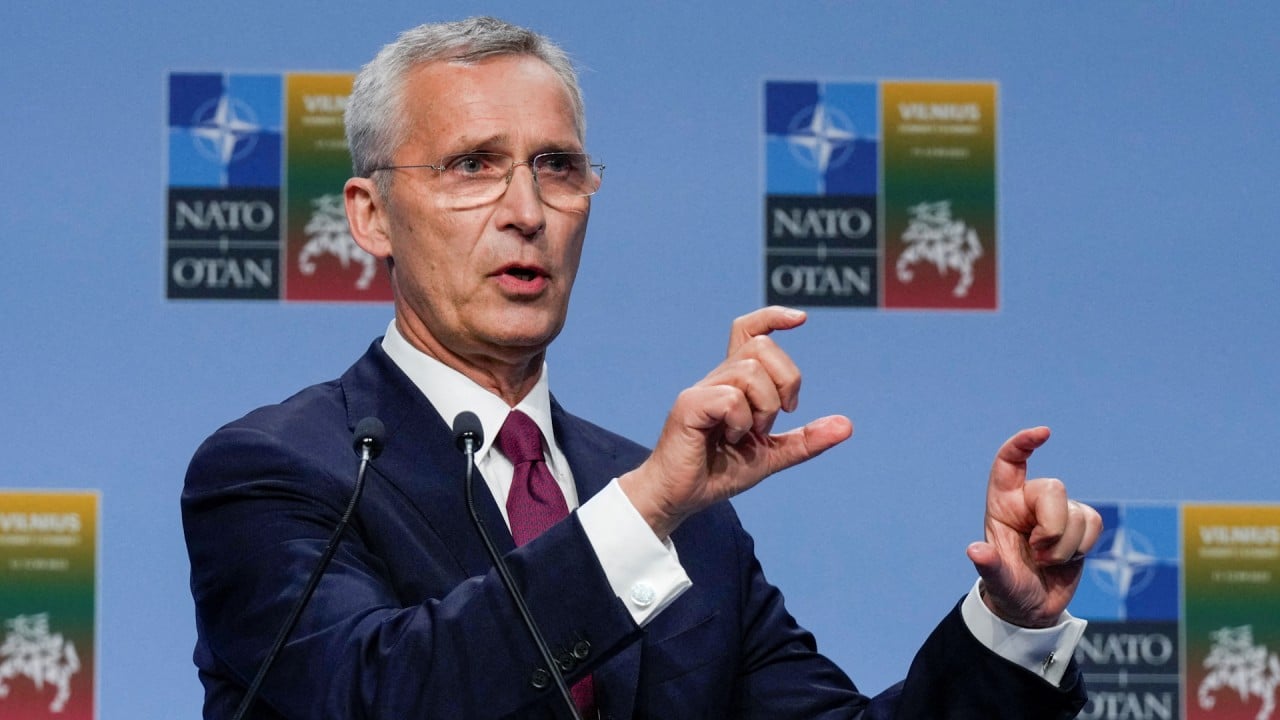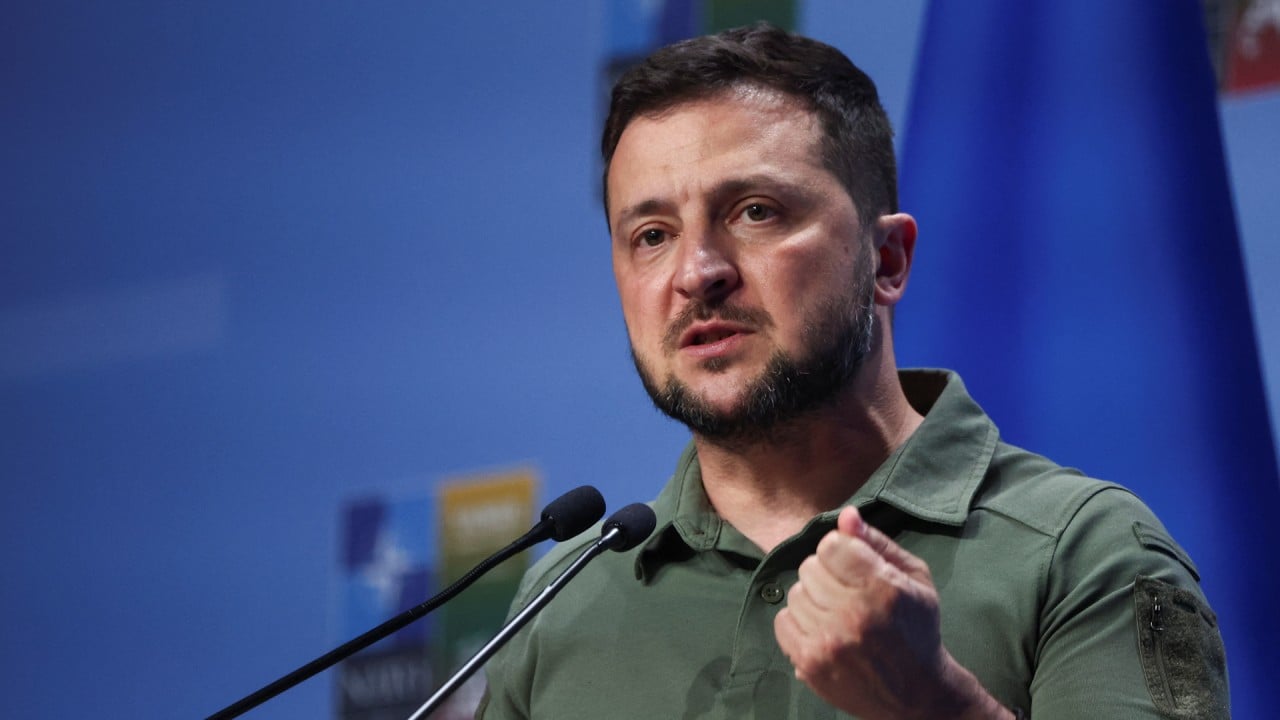
Nato-China ties: envoys’ visit to Japan and South Korea point to more ‘institutionalised’ Asia-Pacific link: analysts
- Japan-Nato cooperation is ‘natural’, according to Japanese statement quoting ambassadors to Nato from eight nations
- As Russia, China, North Korea and Iran align, analyst sees some form of East Asian security ties developing in response
Last Monday, the ambassadors from the Nato countries – the US, Britain, Italy, Denmark, the Netherlands, the Czech Republic, Romania and Poland – met Japanese foreign minister Yoko Kamikawa, with the Nato partners saying the deepening of Japan-Nato cooperation was “natural”, according to a Japanese foreign ministry press release.
In the same press release Kamikawa was quoted as saying: “The security of the Euro-Atlantic and Indo-Pacific is indispensable; therefore, coordination between Japan and Nato members sharing values and principles is getting more and more important”.
The representatives also visited Seoul on Wednesday and met South Korean defence minister Shin Won-sik.
Shin told the Nato representatives the security of the Atlantic and the Indo-Pacific could “never be separated,” and that forces that threatened South Korea would face “resolute responses not only from the South Korea-US alliance but also from the entire world, including Nato”, according to a South Korean defence ministry press release.
Russia’s defence chief hails China ties, warns Nato expansion has nuclear risks
“Nato is not necessarily looking to expand its membership, but it makes plenty of sense to try to coordinate with other like-minded countries in Asia,” said Andrew Yeo, a senior fellow and the SK-Korea Foundation chair of Korea studies at Washington-based think tank the Brookings Institution.
“[Geopolitical] conflict in Asia and Europe these days carry implications for both regions, particularly in the area of economic security, but also with increasing ties between China, Russia and North Korea.”
Nato was seen as attempting to bolster regional security cooperation with Asia-Pacific countries after the leaders of Australia, Japan, New Zealand and South Korea took part in the Nato summit for two consecutive years from 2022.
Ramon Pacheco Pardo, an international relations professor at King’s College London, said the Nato representatives’ visit suggested how Nato’s relations with the Asia-Pacific were “moving from talking to doing”.
“Nato sees China as the biggest long-term threat, and cooperation between China, Russia, North Korea and Iran as a strategic challenge. This explains the focus on enhancing ties with four countries that it can trust in the Indo-Pacific,” said Pacheco Pardo.
“I think that this cooperation will only continue to strengthen, also because its AP4 [Australia, Japan, New Zealand and South Korea] partners see the security benefits of cooperation with Nato.”

The Chinese foreign ministry criticised Nato’s statements and said “Nato must not seek to sow chaos here in the Asia-Pacific or elsewhere in the world”.
“The fact that Europe is now also paying attention to what China is doing in the region complicates China’s calculations to an extent and may reduce its military adventurism more than just Indo-Pacific partners and the United States alone paying attention to this,” said Mirna Galic, a senior policy analyst on China and East Asia at the US Institute of Peace.
“As a result, China is not pleased about Nato’s interest in the region, which it has made clear.”
Pacheco Pardo said the US-China rivalry had driven Washington’s attempt to develop closer cooperation between Nato and the Asia-Pacific region.
“China has been very critical of the Nato-AP4 ties. I think that Beijing understands that countries such as South Korea or Japan boosting ties with Nato makes them stronger by giving them access to new partners, weapons systems or intelligence capabilities. And this is detrimental to China,” he said.
“Under the Joe Biden administration, the US has been the main driver of Nato-AP4 ties …[Shared] threats, common interests and shared values are driving closer cooperation between the two sides.”
According to Galic, ties between Euro-Atlantic and Indo-Pacific partners can be seen as a response to the “return of strategic competition in the international system,” where any events in one region become more relevant to the security of the other region than ever before.
“Deterrence efforts by the United States and its allies and partners now have to account for two strategic competitors – Russia and China – simultaneously, whereas during the Cold War, they only had to account for one – the Soviet Union,” Galic said. “So enabling allies and partners to be aware of what’s happening in one another’s regions becomes more important.”
Yeo said Asia-Pacific countries’ ties within the region and with Nato would become more “institutionalised” over time with more frequent meetings, sharing of information, and possibly even joint exercises.
“China would of course react negatively to a strengthened AP4 and stronger ties to Nato, and may seek to strengthen its own partnerships with Russia, North Korea and other developing countries,” Yeo said.
Japan to build stealth fighter jet with UK and Italy as it pivots beyond US
Bruce Bennett, a defence researcher at the US-based think tank Rand Corporation, said some form of East Asian security ties were likely to develop in response to the recent partnership between Russia, China, North Korea and Iran.
He said the Nato security alliance that was historically a regional issue was expanding its scope because of recent geopolitical transformation.
“So the US security alliances like Nato which were built on regional military considerations are starting to adjust their perspectives … Historically, there was no reason for such arrangements. But the world has changed,” Bennett said.



